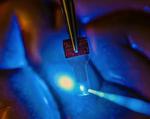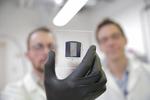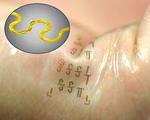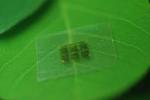Other

“If you’ve ever applied for a loan or checked your credit score, algorithms have played a role in your life. These mathematical models allow computers to use data to predict many things — who is likely to pay back a …

“Wastewater treatment plants have a PR problem: People don’t like to think about what happens to the waste they flush down their toilets. But for many engineers and microbiologists, these plants are a hotbed of scientific advances, prompting their …

“Developing invisible implantable medical sensor arrays, a team of University of Wisconsin–Madison engineers has overcome a major technological hurdle in researchers’ efforts to understand the brain. The team described its technology, which has applications in fields ranging from neuroscience …

“For decades, scientists have tried to harness the unique properties of carbon nanotubes to create high-performance electronics that are faster or consume less power — resulting in longer battery life, faster wireless communication and faster processing speeds for devices like smartphones …

“University of Wisconsin—Madison engineers have created high-performance, micro-scale solar cells that outshine comparable devices in key performance measures. The miniature solar panels could power myriad personal devices — wearable medical sensors, smartwatches, even autofocusing contact lenses. Large, rooftop photovoltaic arrays …

“The consumer marketplace is flooded with a lively assortment of smart wearable electronics that do everything from monitor vital signs, fitness or sun exposure to play music, charge other electronics or even purify the air around you — all wirelessly. Now …

“One secret to creating the world’s fastest silicon-based flexible transistors: a very, very tiny knife. Working in collaboration with colleagues around the country, University of Wisconsin-Madison engineers have pioneered a unique method that could allow manufacturers to easily and …

“Inspired by mammals’ eyes, University of Wisconsin-Madison electrical engineers have created the fastest, most responsive flexible silicon phototransistor ever made. The innovative phototransistor could improve the performance of myriad products — ranging from digital cameras, night-vision goggles and smoke detectors to …

“In an effort to alleviate the environmental burden of electronic devices, a team of University of Wisconsin-Madison researchers has collaborated with researchers in the Madison-based U.S. Department of Agriculture Forest Products Laboratory (FPL) to develop a surprising solution: a …
